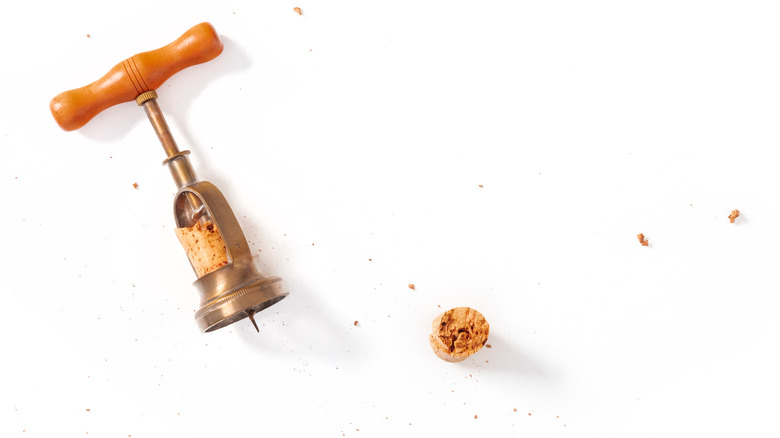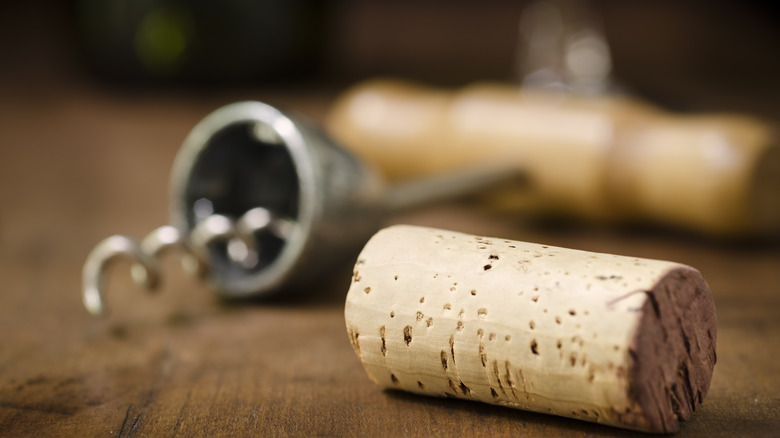What To Do If Small Pieces Of Cork End Up In Your Wine Bottle
We may receive a commission on purchases made from links.
The unthinkable has just happened. After years spent waiting, you finally opened up that bottle of aged Barolo, only to have the cork break, crumbling into dozens of tiny fragments that now swirl rhythmically around the wine bottle. First things first, resist the urge to panic. The wine is still safe to drink — a crumbled stopper doesn't mean a wine has been corked, and in all likelihood, the wine is more than salvageable. All you need is the help of a few simple tools and techniques to turn the situation around.
While bits of cork won't impact flavor, they are an eyesore that can detract from the tasting experience. Evidently, removing these pieces is a must. That said, the easiest way to go about removing any cork is to filter them out with some sort of strainer as you pour the contents of the bottle into a decanter or glass. Although a stainless steel mesh strainer is least likely to affect flavor, this works best for larger chunks of cork, whereas a cheesecloth or coffee filter (preferably draped over a funnel) will be more effective at catching smaller fragments.
If the thought of balancing a strainer as you pour seems a touch too complicated, there's another solution. Consider investing in a specialized spout that catches pesky cork pieces so the only thing you have to do is pour and sip without worry.
For cork-free wine, reduce the risk of a crumbling
The best way to deal with crumbled bits of cork floating around in your wine is to prevent them from forming in the first place. Of the many reasons a cork fragmented in the bottle, the first you can't do much about — improper manufacturing. Though cork is a natural material, like any processed product, quality control measures make it less likely you'll get a faulty stopper, but not impossible.
For what may only partially be your fault — poor storage conditions can cause corks to dry up and become brittle. Keeping bottles on their sides and storing them somewhere dark with a constant and cool temperature will help keep corks moist. Doing this preserves not just the cork but the wine because a wet cork slows oxidation. Time could also be a factor for disintegrating corks. We recommend opening wines carefully and without haste. Otherwise, it might be wise to swap a traditional waiter's friend corkscrew for a butler's thief opener to avoid any crumbling. Also known as a twin blade, the two-pronged device will ensure that even the most fragile and dry corks remain as intact as possible.
No matter how hard you may try to prevent corks from crumbling, pieces may still end up in the wine bottle. However, now you know that with a quick filter, you can quickly get back to enjoying wine as it was meant to be: cork-free.

